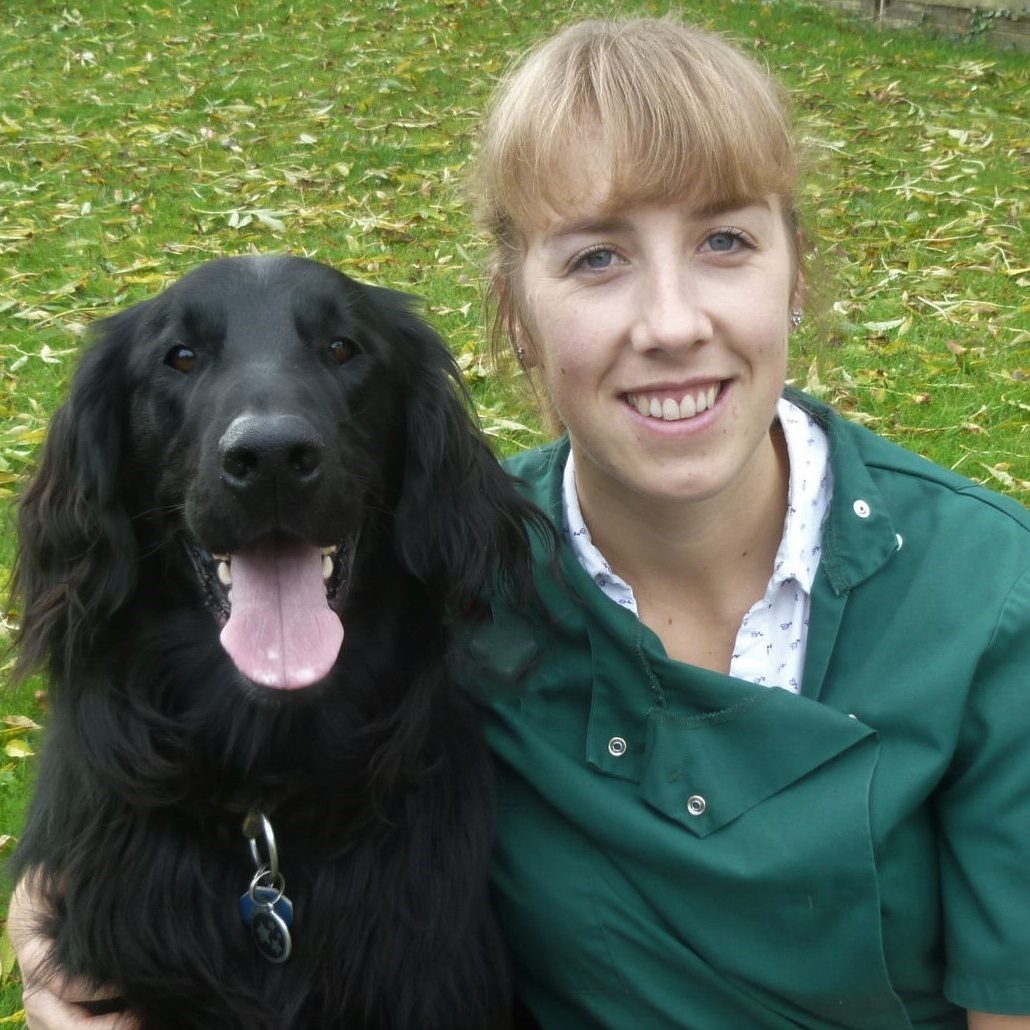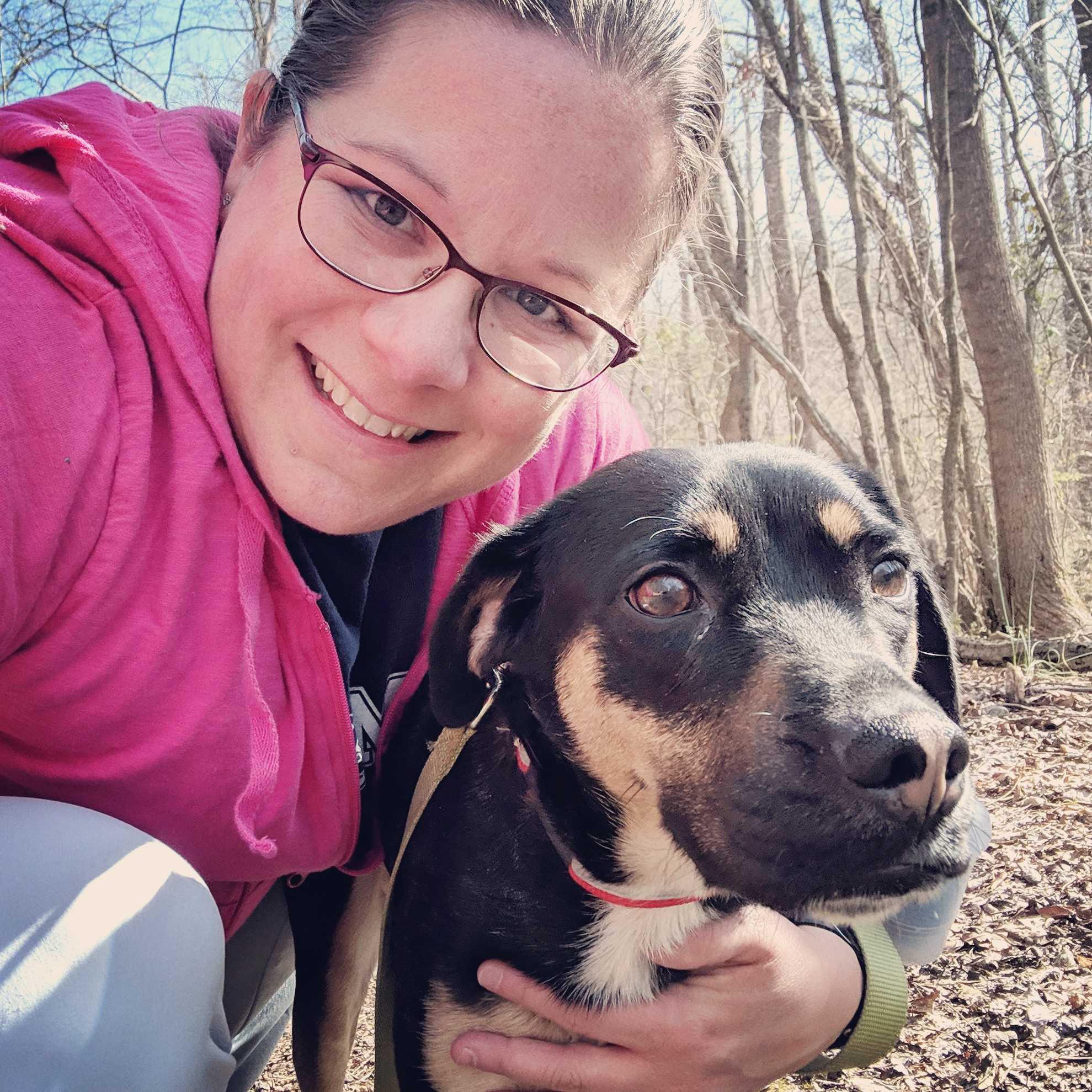Apoquel for dogs: Vet explains the ins and outs of this prescription medication
Apoquel for dogs can help provide long-term relief from allergies.

Get the best advice, tips and top tech for your beloved Pets
You are now subscribed
Your newsletter sign-up was successful
Apoquel for dogs is a valuable treatment option for pups suffering from atopic dermatitis, as well as some cases of flea allergic dermatitis. It is one of several medications that a vet may reach for in an effort to provide relief for a pet with allergies.
While many pet owners turn to the best dog food for allergies to try to alleviate their fur friend's symptoms, the majority of canine allergies are caused by environmental triggers. Therefore, diet alone is often insufficient for the treatment of allergies. Instead, veterinarians often recommend Apoquel and other allergy medications to treat skin allergies in dogs.
It can take some trial and error to determine the best course of treatment for your dog as every pup responds differently to medication. However, if Apoquel works well for your dog, it can be a safe option for providing long-term relief from allergies.
Below, Dr Catherine Barnette explains everything you need to know about Apoquel, including the types of allergies it's used for, the correct dosage, and the potential side effects. Plus, Dr. Rebecca MacMillan reveals how long dogs can take Apoquel for and whether there are any good alternatives.

Dr. Barnette graduated from the University of Florida in 2006 where she received both her B.S. in Zoology and her Doctor of Veterinary Medicine (DVM). She has 15 years of clinical experience as a small animal veterinarian, treating dogs, cats, and occasional exotic patients. When she’s not writing content as a freelance veterinary writer, Dr. Barnette lives in southwest Florida with her husband and daughter (plus two cats, a dog, and a rescued dove!) and enjoys kayaking, biking, and hiking.

Dr. Rebecca MacMillan is a companion animal vet with over 13 years of experience treating and looking after pets. She graduated from the UK Royal Veterinary college in 2009, and has worked in several practices over the years. Rebecca is also an experienced writer, using her veterinary background to offer expert opinion and advice.
What does Apoquel do for dogs?
"Apoquel contains the active ingredient oclacitinib maleate which helps to control the pruritus (itchiness) that is seen in dogs with allergic skin diseases," explains MacMillan.
"Apoquel reduces the action of signaling molecules called cytokines, therefore preventing the transmission of ‘itch signals’ to the brain. This reduces scratching behavior. It also stops signals that make inflammatory cells accumulate in the skin, which lowers the inflammation and redness that is usually seen in dogs with allergies."
What is Apoquel used for in dogs?
Apoquel is typically used to treat atopy, a particular form of skin allergies. There are three primary types of skin allergies in dogs.
Get the best advice, tips and top tech for your beloved Pets
The most common allergies in dogs include food allergies, flea allergy, and atopy. Below, you'll find a little more information on each of these.
1. Food allergies in dogs
Food allergies in dogs involve an allergic reaction to a particular food protein, such as beef or chicken. Commercially-available dog food allergy tests are generally considered unreliable, so food allergies are diagnosed through a food trial.
This requires feeding a highly restricted diet that excludes specific proteins that can trigger allergies. Dogs with food allergies need to remain on a restricted diet for the remainder of their lives.
2. Flea allergies
Flea allergies involve an allergy to proteins found in the saliva of fleas. In dogs with flea allergies, just a small number of flea bites can trigger a significant, widespread skin reaction with signs that may include itching, redness, and hair loss.
Most cases of flea allergy can be treated with the best flea treatment for dogs (given according to your veterinarian’s recommendations). However, some dogs may require additional allergy medications if they are in an environment with large numbers of fleas.
3. Atopy
Finally, there’s atopy. Atopy is the most common form of allergic skin disease in dogs and involves an allergic reaction to inhaled allergens. Pollen, dust, mold, and other airborne allergens can trigger atopy in dogs.
Although atopy is the most common form of allergies in dogs, it is a diagnosis of exclusion. This means that you must first rule out food allergies and flea allergies (with a food trial and consistent prescription-strength flea prevention) before definitively diagnosing a dog with atopy.
Atopy is typically managed with long-term medication, although hyposensitization injections (“allergy shots”) can also be beneficial.
Apoquel is typically used to treat the itching and inflammation associated with atopy in dogs. Dogs often remain on Apoquel throughout their allergy season, although some dogs require year-round treatment.
Apoquel can also be used (less commonly) in dogs with flea allergies. It can help control itching and inflammation until flea prevention takes effect or provide additional relief for a dog receiving frequent environmental exposure to fleas.
Dosage

Your vet will calculate your dog’s Apoquel dosage based on your dog’s body weight. In most cases, your veterinarian will recommend initially giving Apoquel twice daily, to provide rapid relief for your dog.
After two weeks, your dog’s Apoquel dosage will be decreased to a once-daily maintenance dose. This maintenance dose can be continued long-term.
Apoquel can be given with food or on an empty stomach. If you decide to discontinue Apoquel for any reason, you can stop the medication immediately. Unlike some other medications, Apoquel does not need to be tapered slowly.
How long can a dog take Apoquel for?
"Dogs can safely take Apoquel long-term for their allergies. Your vet will usually suggest monitoring your pet to ensure the medication is effective and that there are no side effects," explains MacMillan. "To do this they may advise blood tests, as well as examinations at regular intervals. Some dogs may only require short courses of Apoquel whereas others will need it ongoing to manage their condition."
Side effects
Historically, allergic dermatitis was often treated with corticosteroids (such as prednisone). Unfortunately, corticosteroids can have a number of unpleasant side effects and harmful impacts on the body.
Therefore, Apoquel and other allergy medications have been designed with the goal of controlling allergic dermatitis without the harmful side effects that accompany corticosteroids.
The most common side effects associated with Apoquel are vomiting, diarrhea, and lethargy. Fortunately, these side effects are relatively uncommon. Rarely, dogs on Apoquel develop new skin masses; however, a long-term study published in the Journal of the American Veterinary Medical Association found no association between Apoquel and the development of malignant cancer.
Apoquel can be safely combined with many other medications. If your dog is currently taking prescription or over-the-counter medications, talk to your veterinarian to ensure that these medications can safely be combined with Apoquel.
Apoquel should not be used in pregnant or lactating dogs, dogs under one year old, or dogs with serious infections.
Can you get Apoquel for dogs without a vet prescription?

Apoquel is a prescription medication and is only available through a vet.
If your dog has signs of allergic dermatitis, regular veterinary care will be required to develop an effective treatment plan and maintain your dog’s skin health. Allergies are managed, not cured, and you will need to work closely with your dog’s vet to control allergies over your dog’s lifespan.
If you wish to avoid prescription medications and stick to home remedies, talk to your veterinarian about tips for coping with allergic pets.
Depending on the source of your dog’s allergies, there may be measures you can take to minimize your dog’s allergy flare-ups.
Are there alternatives to Apoquel
"Apoquel is the only licensed form of oclacitinib for dogs, at the time of writing. However, there are other types of medication that may also be useful for dogs with excessively itchy skin," says MacMillan. "These include glucocorticoids (‘steroids’) e.g. prednisolone, monoclonal antibodies e.g. Cytopoint, ciclosporin e.g. Atopica, immunotherapy, and antihistamines. You should always speak to your vet about the various treatment options that might be available to your pet."
Discovered your dog has an allergy and keen to learn more about what you can do to support them? Here's a vet's top tips for how to help a dog with allergies.
Dr. Barnette is a graduate of the University of Florida, where she received both her B.S. in Zoology and her Doctor of Veterinary Medicine (DVM). She has 15 years of clinical experience as a small animal veterinarian, treating dogs, cats, and occasional exotic patients. She now works as a freelance veterinary writer, creating educational content for veterinarians, veterinary team members, and dedicated pet owners. Dr. Barnette lives in southwest Florida with her husband and daughter (plus two cats, a dog, and a rescued dove!) and enjoys kayaking, biking, and hiking. Learn more about Dr. Barnette at www.linkedin.com/in/catherinebarnette.

